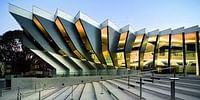- Student have the opportunity to focus on niche areas including renewable technologies such as wind farms, and electrical drive systems such as those used on ships and submarines and in emission-free vehicles with this from .
- Electrical engineering is concerned with large scale electrical systems such as power supply, renewable power generation and motors while electronic engineering is typically concerned with small scale, often lower voltage electronic systems such as computer systems, communication networks and integrated circuits. This degree adds to your previous study and covers both types of engineering.
- Electrical and electronic engineers are involved in developing technology used in areas such as aircraft systems, media and sound broadcasting, power distribution systems, traffic and urban management, medical equipment, robotics, broadband systems, and scientific devices.
- Career
- High demand exists for qualified professional electrical and electronic engineers in areas such as defence, medicine, telecommunications, building, manufacturing and mining.
Master of Engineering Science(M.Eng) (Electrical and Electronics Engineering)
2 years
On Campus
English
Field of Study:
A$41,400/Yr
A$41,400 /Yr
Important Dates
| Event | End Date |
| Application Deadline For 2023 Intake | Mar 1, 2023 |
Fees & Funding
Tution & Application Fees
| Year | Year 1 | Year 2 |
| Tuition Fees | A$41400 | A$41400 |
| Total Fees | A$41400 | A$41400 |
Living Costs
| Head | Avg Cost Per Year |
| Living Expenses | A$15269 |
Eligibility & Entry Requirement
- A masters degree with a research component from an Australian university or its equivalent.
- The equivalent of an Australian bachelors degree with second class honours or better undertaken in the field of study students intend to pursue in their proposed masters program.
Ask your question
Similar Colleges You Might Be Interested In
- Similar Colleges
No Ratings Found!!
Follow
No Ratings Found!!
Follow
No Ratings Found!!
Follow
No Ratings Found!!
Follow
No Ratings Found!!
Follow
No Ratings Found!!
Follow

Australian National university test1
Canberra, Australian Capital TerritoryNo Ratings Found!!
Follow
No Ratings Found!!
Follow













